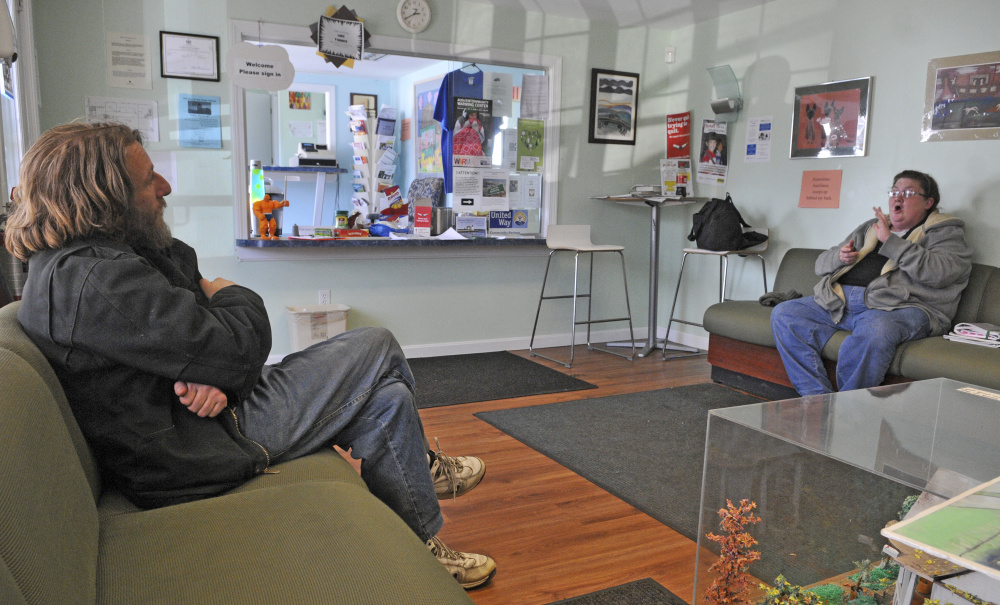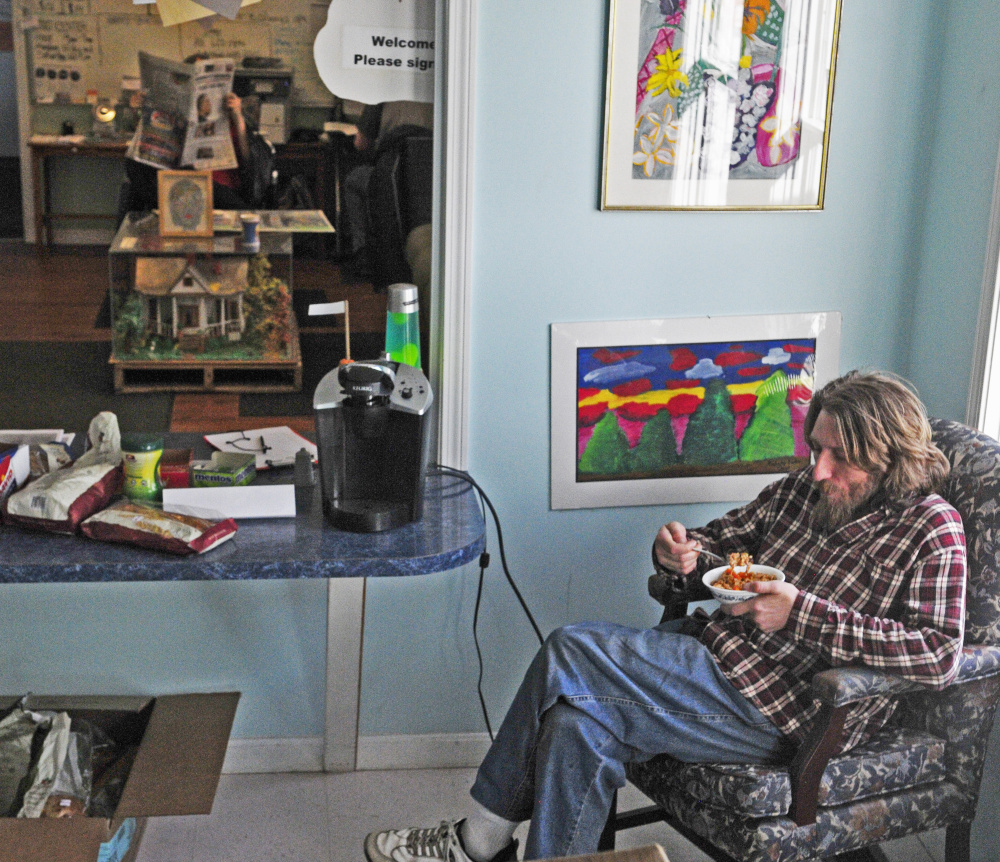AUGUSTA — Questions, confusion and concerns dominated a prebid meeting Friday in response to the state’s request for proposals to operate peer-run recovery centers for people with mental illness and co-occurring substance abuse disorders.
No answers were provided at the prebid conference, a practice in place for about two years, according to the Department of Health & Human Services. Instead, attendees were told all the answers would be posted May 17 on the department’s website along with answers to written questions.
Bids are due May 24.
The proposal-shopping appears to be a response to a bill making its way through the Legislature, L.D. 842, which would establish peer center reimbursement. The current peer centers themselves previously had come to the Legislature seeking more funding.
The request for proposals says the department intends “to standardize all recovery-orientated community services by transforming them into peer-run recovery centers.” The state’s intent is to make eight awards or one each per public health district. There are now 12 peer support centers in the state.
The proposal places Kennebec and Somerset counties in the central district; Knox, Lincoln, Oxford and Waldo counties in the midcoast district; and Androscoggin, Franklin, and Oxford counties in the western district.
The prebid meeting at department offices on Anthony Avenue attracted more than two dozen people from mental health and social service agencies across the state, many of which already provide these services.
Peter Driscoll, executive director of Amistad, which operates peer support centers in the Portland area as well as inside Riverview Psychiatric Center in Augusta, urged those coordinating the proposals for DHHS to extend the deadline since the answers to all questions posted will be available only a week or so before letters of intent are due.
Lorna Bullard Baines, one of the state’s RFP administrators, indicated more time might be possible.
“If we have to do an amendment to the RFP, we will,” she said after the meeting.
Attendance at the prebid conference was not required.
“It gives the bidders the opportunity to see who they’re bidding against,” Bullard Baines said.
At the prebid meeting, Dorrie Oakes, of Beacon House, which is based in Rumford but serves all of Oxford County, asked whether the 40 hours that would be funded must be Monday through Friday or might include weekends, as her agency provides now.
“Mental illness doesn’t take the weekend off,” she said.
She also asked whether transportation costs would be reimbursed and cited the distance challenge presented in Aroostook County.
“How are you going to be centrally located? she asked. “That’s four hours from tip to tip. I wish there was more common sense in the geography of this.”
The start date for the contract is Oct. 1.
Driscoll said Amistad’s peer support centers are used by 125 to 130 people a day for such basic needs as showers, food or socializing with friends.
“Mental illness is sometimes very isolating,” he said, adding that some of those with mental illness are unable to hold jobs, and the peer support centers provide socialization and something productive to do with their time.
At the prebid conference, he asked whether the request for proposals had been shown to those overseeing a consent decree that governs how the state is to treat individuals with severe and persistent mental illness.
Afterward, he said the meeting illustrated how the visions of the peer centers differ between the department and those who have run them for years.
“The peer centers are really quite wonderful,” Driscoll said. “There’s a sense of community, of belonging, of wellness and companionship.”
At the meeting, Sharon Shepard, co-manager of the Together Place Social Club in Bangor, which operates through Maine Mental Health Connections, Inc., asked, “Where is client choice in all of this?”
She said program clients there get to vote on such things as the paint color for the walls and the prices of items on the snack bar. She said the social clubs emphasize socializing as well as some educations programs, but it appeared that the peer centers anticipated under the RFP would be more focused on work.
She also asked how that would help people receiving Social Security disability assistance from the federal government.
John Painter, service director at Motivational Services, Inc., which operates two peer support centers — the Living in the Community Wellness Center on Memorial Drive in Augusta and the Waterville Social Club on Ticonic Street in Waterville — said both of those would be at risk.
“Social clubs are, historically in Maine, places that were put together 30-plus years ago primarily as an outlet for people being discharged from the Augusta and Bangor Mental Health Institutes,” Painter said. “They were extremely lower barrier, low cost or no cost for people to start to socializing, have human connections. Over the past 30 years, because they have worked, many of the people who have used those peer support services have begun to formalize that.”
Painter cited a 2010 study of peer centers that indicated it cost about $10 per person per day for the services, calling it “the best bang for the buck.”
The peer centers now are funded annually through a contract that describes the types of services that must be offered.
“These services are very valuable to the community where they’re located and valuable to the people they support,” said Rep. Donna Doore, D-Augusta, one of the legislators who cosponsored the peer center reimbursement bill. “DHHS is not my committee, but it has been the practice of this administration to take away things people need, as opposed to helping.”
Betty Adams — 621-5631
Twitter: @betadams
Copy the Story LinkSend questions/comments to the editors.





Success. Please wait for the page to reload. If the page does not reload within 5 seconds, please refresh the page.
Enter your email and password to access comments.
Hi, to comment on stories you must . This profile is in addition to your subscription and website login.
Already have a commenting profile? .
Invalid username/password.
Please check your email to confirm and complete your registration.
Only subscribers are eligible to post comments. Please subscribe or login first for digital access. Here’s why.
Use the form below to reset your password. When you've submitted your account email, we will send an email with a reset code.